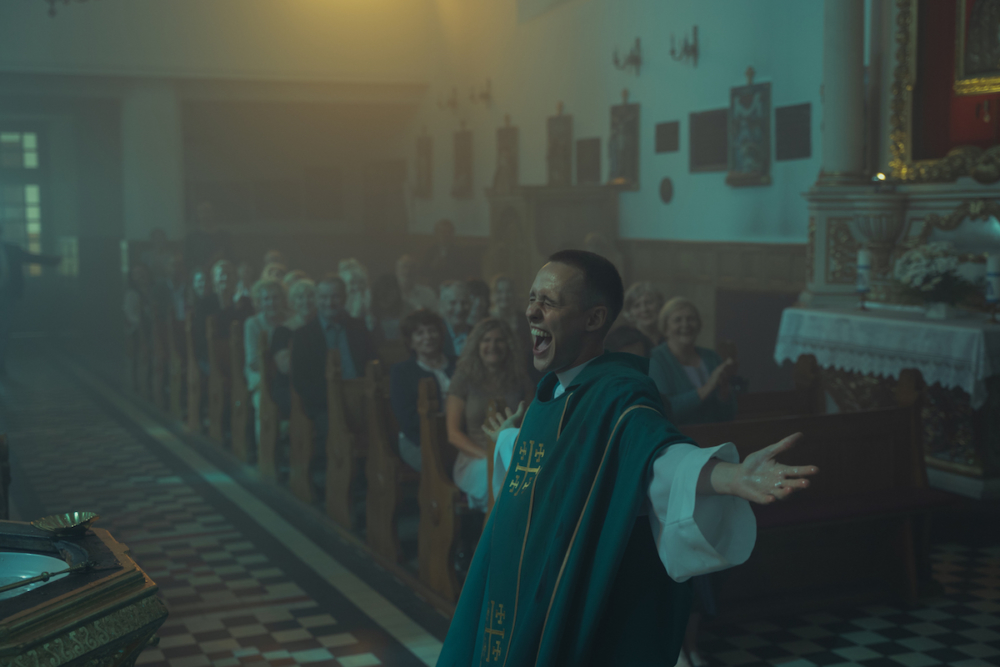Exit Poll: ‘Corpus Christi’ Does What ‘Three Billboards’ Wished It Could’ve

Exit Poll is a series exploring the good, bad, and outright deranged films and events our editors are attending. This week: Bessie Rubinstein streams Corpus Christi, the latest film by director Jan Komasa. While we struggle to assign blame to those culpable for the botched COVID-19 response in America, and those who are guilty struggle to assign blame elsewhere, Bartosz Bielenia‘s performance as a converted delinquent-cum-priest is relevant and, well, not preach-y.
At the 2020 Oscar Awards, Polish director Jan Komasa‘s Corpus Christi quietly lost to Bong Joon Ho’s Parasite, a film able to open America’s eyes, à la A Clockwork Orange, to the merits of foreign film. It’s a shame the Oscars operate under the assumption that America does it best. Corpus Christi, critiquing religious hypocrisy in the Polish Catholic Church, is similarly universal in its appeal.
We meet Daniel (Bartosz Bielenia), the film’s cultishly charismatic lead, in a sawmill employing men serving their sentences in a juvenile detention center. The opening sequence—a gripping single-take shot of a group of boys forcing another’s genitals into a drawer to be crushed as Daniel keeps watch for their boss—spells out the rules of the film, and Catholicism itself. Someone must be punished. The sunlight outside the sawmill hits Daniel’s face like a holy light, illuminating the bone structure of a fanatic. Gaunt, dark-circled, with eyes searing from deep sockets, Daniel’s visage is that of a man starved. His haunted intensity carries the film; whether Bielenia is moving to EDM music, snorting cocaine, or praying the rosary, his eyes convey the desperation with which we channel life’s tragedies and drudgeries. These eyes become placid during a Catholic service, where Daniel seems to again be leader of the pack, guiding his delinquent congregation in words of praise under the approving eye of the Father Tomasz, who presides over the juvie. Though this alpha position earns laughter from his peers, it’s the life Daniel craves, though he’s told the seminary will not accept “scum” like him. So, once paroled, he wanders, abandoning the less inspiring (but stable) carpenter’s job arranged by Father Tomasz for more frantic raving, sex, and fistfights.
Partying cannot match the solace of prayer for Daniel, though he approaches both with fervor; he is soon drawn to the local church, armed with a priest’s collar stolen from Father Tomasz. In a few short sequences, Daniel has swapped his own name for “Father Tomasz,” his customary tracksuit (we see you, Central Europe) for more ornate holy garb, and a dead-end life for a temporary position fulfilling the usual priest’s duties. Corpus Christi’s craft is all the more impressive considering that it retains nuance despite its tried-and-true plot structures (an accident becomes a true calling; a marginalized loner unravels a small town’s secrets and gets the girl in the process). Together, Komasa and Bielenia accomplish the latter plot with none of the reductive cuteness of, say, Three Billboards Outside of Ebbing, Missouri —and with ten million dollars less.






